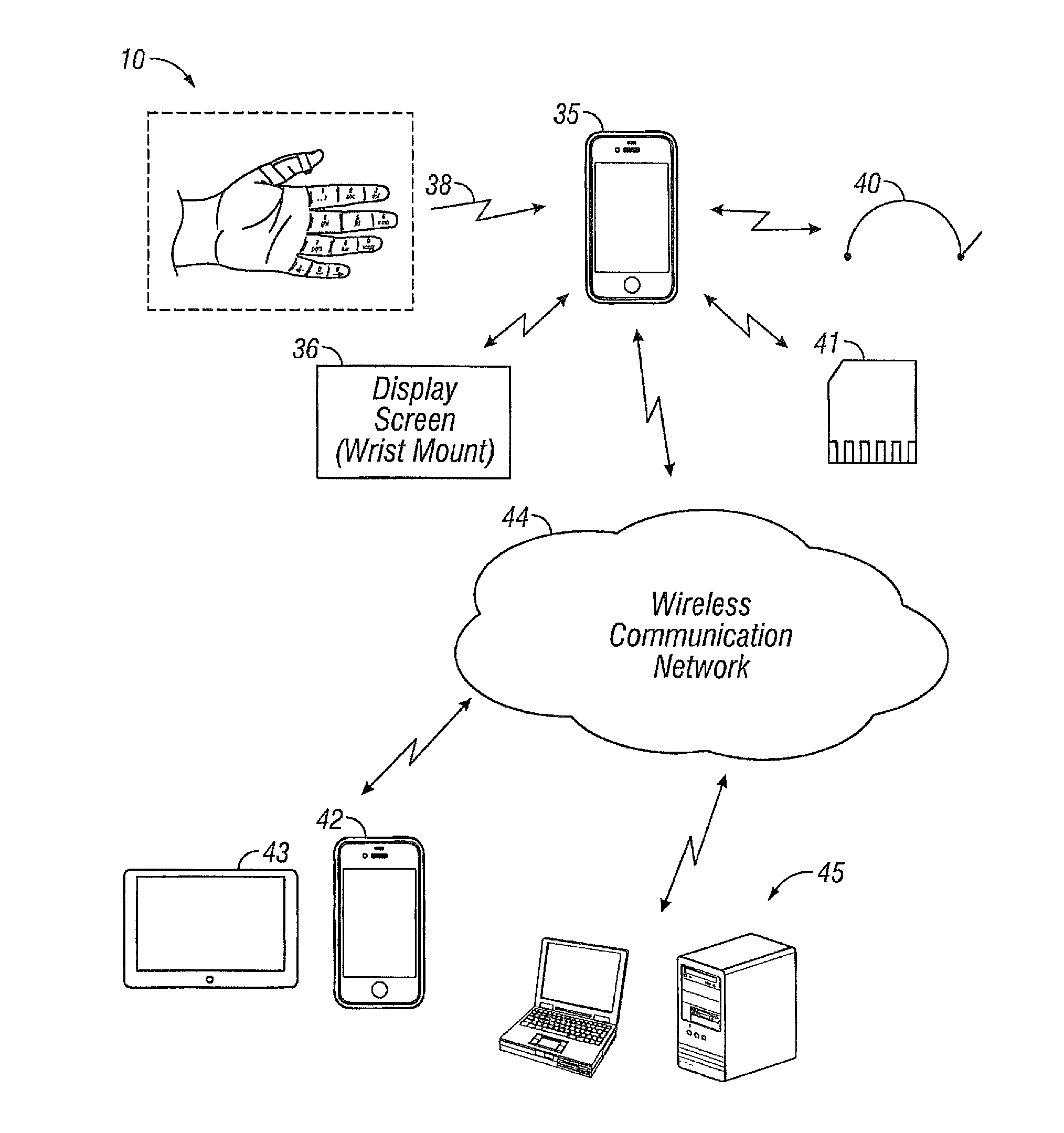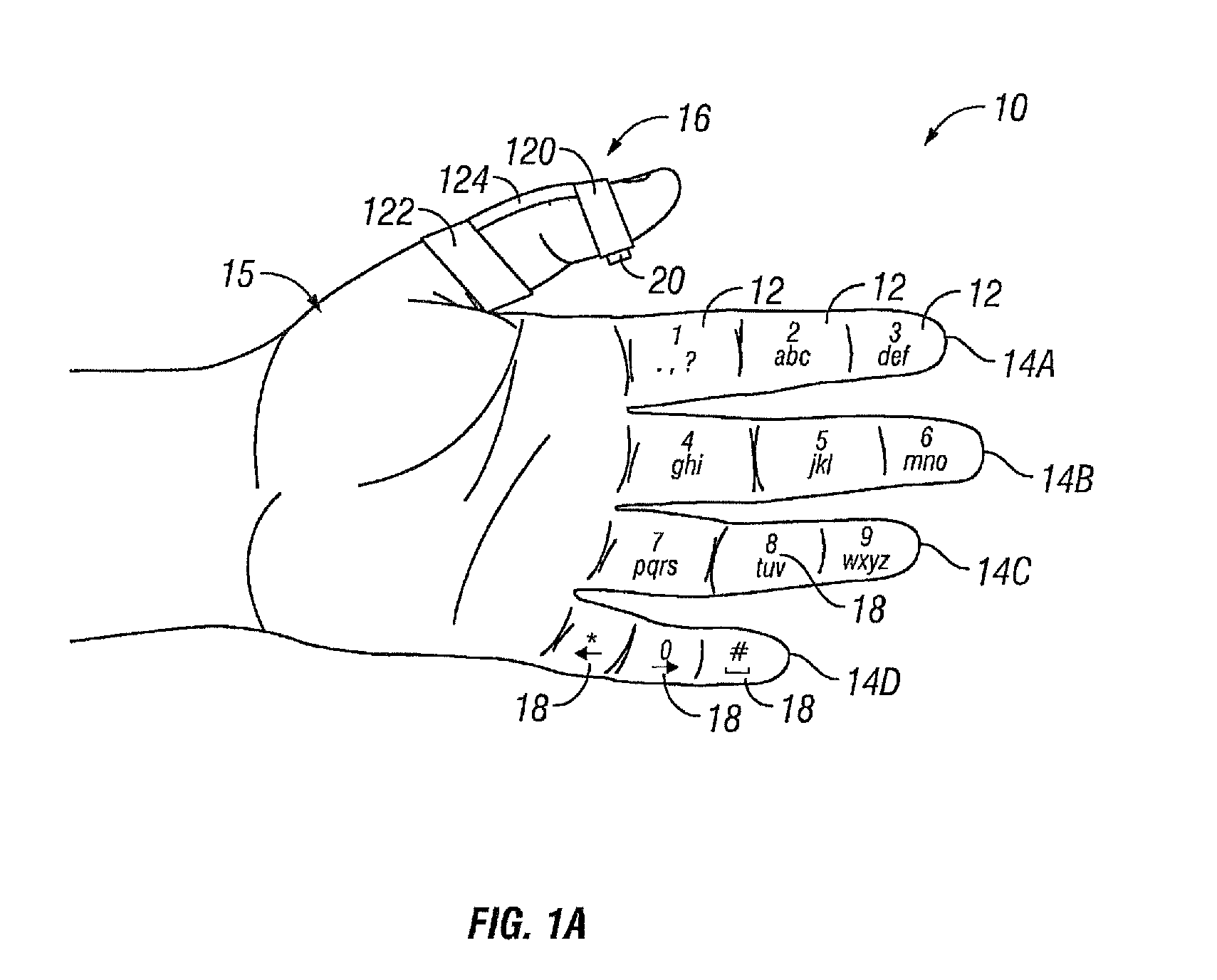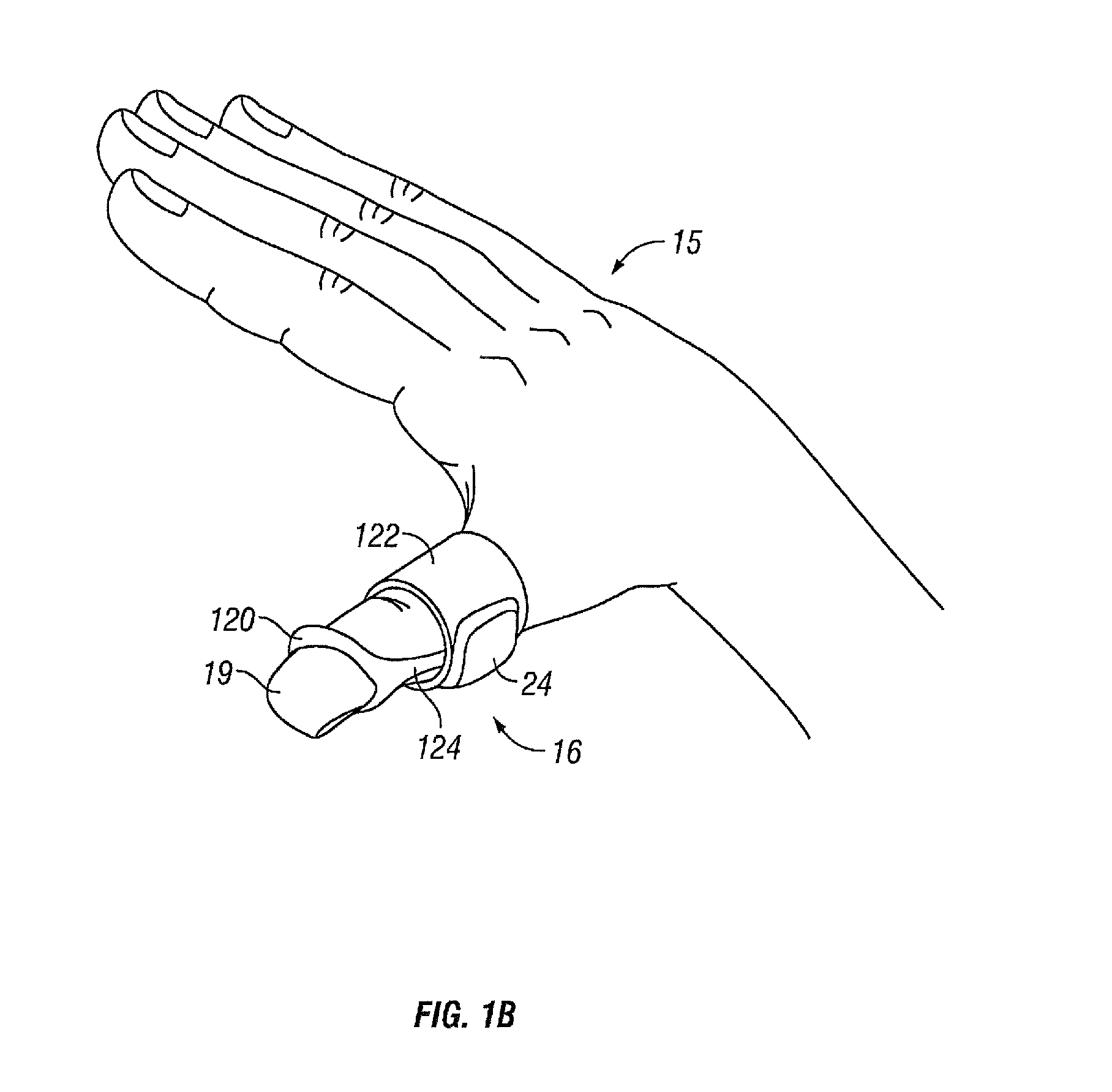Finger keypad system and method
a technology of finger keypad and text entry, which is applied in the field of text entry system and method, can solve the problems of affecting the normal use of hands, and difficult to enter text at high speed on such devices, so as to improve the speed of input, facilitate the response to incoming text messages, and quickly enter notes
- Summary
- Abstract
- Description
- Claims
- Application Information
AI Technical Summary
Benefits of technology
Problems solved by technology
Method used
Image
Examples
Embodiment Construction
[0030]Certain embodiments as disclosed herein provide for systems, devices and methods of using the twelve finger segments of the human hand as a 12-key keypad for text entry on a mobile phone or the like without using a keyboard on the mobile device itself.
[0031]After reading this description it will become apparent to one skilled in the art how to implement the invention in various alternative embodiments and alternative applications. However, although various embodiments of the present invention are described herein, it is understood that these embodiments are presented by way of example only, and not limitation. As such, this detailed description of various alternative embodiments should not be construed to limit the scope or breadth of the present invention as set forth in the appended claims.
[0032]FIGS. 1A and 1B illustrate one embodiment of a finger keypad system 10 in which the three finger segments 12 of each finger 14A, 14B, 14C, 14D of a human hand 15 are used to represen...
PUM
 Login to View More
Login to View More Abstract
Description
Claims
Application Information
 Login to View More
Login to View More - R&D
- Intellectual Property
- Life Sciences
- Materials
- Tech Scout
- Unparalleled Data Quality
- Higher Quality Content
- 60% Fewer Hallucinations
Browse by: Latest US Patents, China's latest patents, Technical Efficacy Thesaurus, Application Domain, Technology Topic, Popular Technical Reports.
© 2025 PatSnap. All rights reserved.Legal|Privacy policy|Modern Slavery Act Transparency Statement|Sitemap|About US| Contact US: help@patsnap.com



